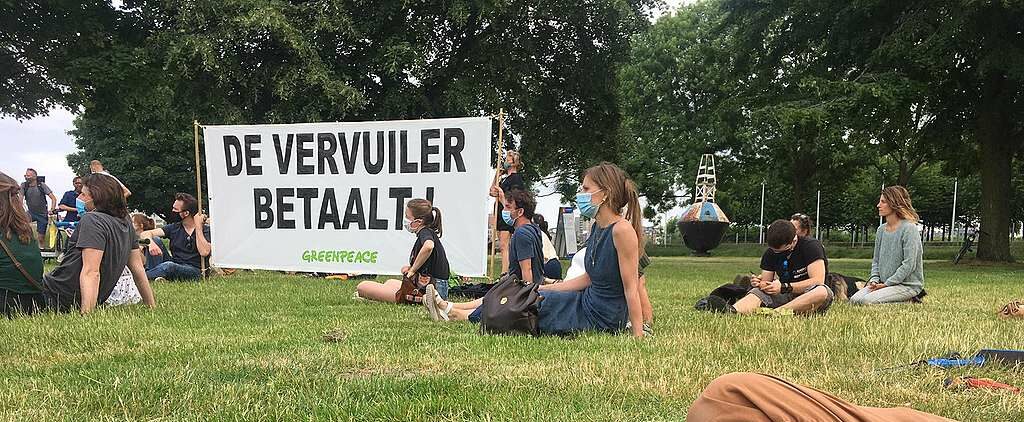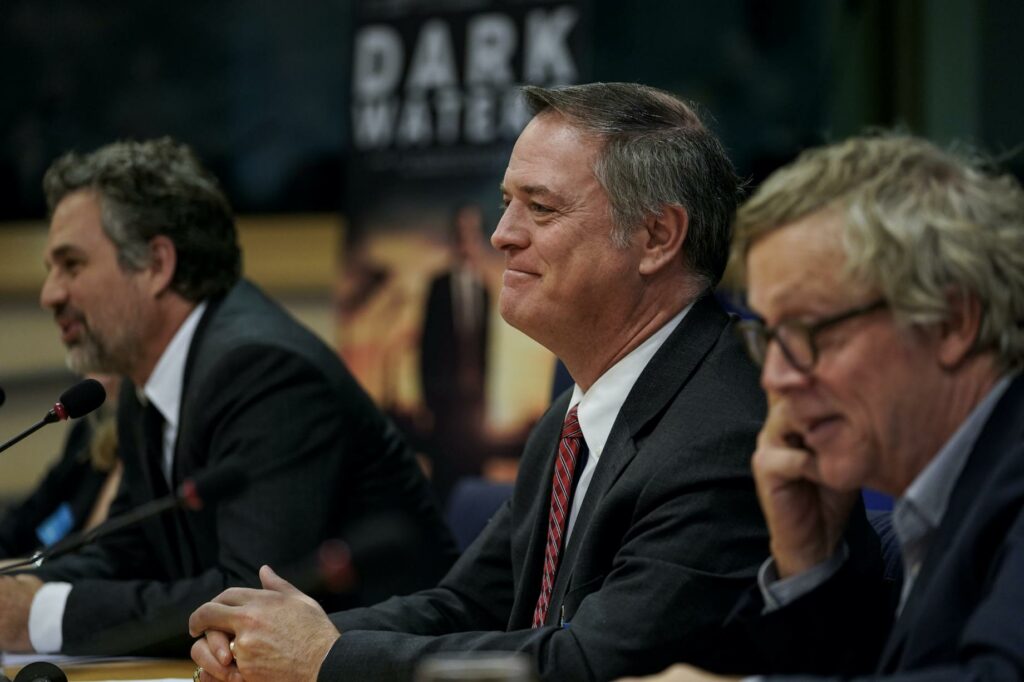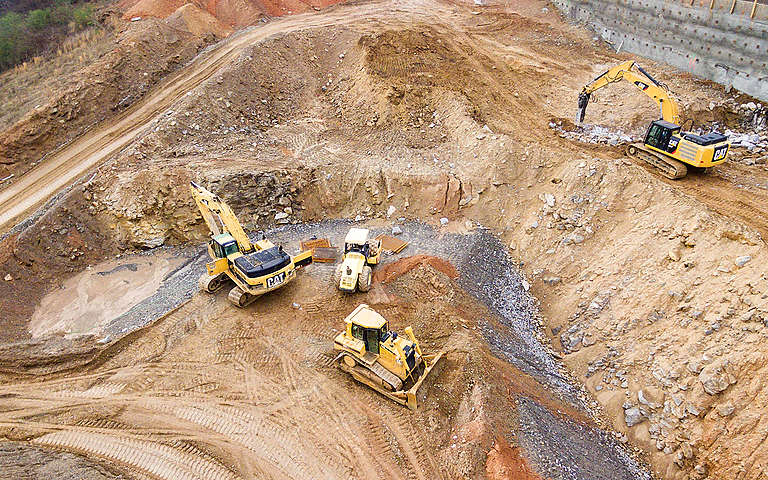Terwijl het debat over PFOS en de Oosterweel-werken voort woedt, brengt dit dossier ook steeds meer onderliggende systeemfouten in het milieubeleid naar boven. Het schandaal is een symptoom van een bredere ziekte, die zich ook in andere dossiers manifesteert.
29.06.2021 | Greenpeace Belgium
De afgelopen weken is duidelijk geworden dat belangrijke actoren in politiek en administratie al in 2017 wisten van de onrustwekkende bodemvervuiling. Die werd ontdekt bij de voorbereiding voor de Oosterweel-werken. Toch werd het grote publiek daar bewust niet over ingelicht, omdat ‘de schup’ nu eenmaal in de grond moest. En dat terwijl er toen dus al ernstige waarschuwingen waren over gezondheidsrisico’s voor omwonenden in Zwijndrecht en omstreken.

Beleid op maat van de vervuiler
Het PFOS-schandaal is daarmee symptomatisch voor de systeemfouten in het beleid, dat voorrang geeft aan kortzichtige economische belangen ten koste van milieu en gezondheid. Al te vaak wordt de rode loper uitgerold voor vervuilende industrie of schikt de politiek zich naar hun wensen. Ook hier: PFOS-vervuiler 3M dwong de Vlaamse regering en Lantis naar verluidt zelfs tot de beruchte dading – die de belastingbetaler laat opdraaien voor de opkuiskosten en een zwijgplicht oplegt over de PFOS-vervuiling – door te dreigen om jobs weg te halen. Resultaat: de Vlaamse overheid plat op de buik en milieu en gezondheid opnieuw op het tweede plan.
We zien ook in andere dossiers in Vlaanderen dat grote vervuilers vaak buiten schot blijven. Economische belangengroepen zoals Essenscia voor de chemische industrie of de Boerenbond voor grote landbouwbedrijven wegen te zwaar op de besluitvorming. Ze staan op de rem voor ambitieuze bescherming van klimaat, milieu of gezondheid om zolang mogelijk alles bij het oude te houden in functie van kortetermijnwinsten.
Gezondheids- en milieunormen worden daardoor ook al te vaak afgezwakt of onder de mat geschoven. Die te sterke verstrengeling tussen lobbygroepen en politiek zorgt er mee voor dat we op alle vlakken op onze grenzen botsen: CO2-uitstoot, lucht-, stikstof-, bodem-, en watervervuiling en te zware druk op natuur en open ruimte. Om nog te zwijgen van de oneerlijke verdeling van die lasten, want het zijn vaak de sociaal en economisch zwakkere groepen die het eerst en hardst de gevolgen van vervuiling en de klimaatcrisis ondervinden.
Gelukkig zijn er nog wakkere burgers of milieuverenigingen om aan de alarmbel te trekken en vergunningen voor schadelijke ontwikkelingen in vraag te stellen of aan te vechten. Die burgerparticipatie is een gezonde extra controle in een democratisch besluitvormingsproces. Wie kan dan begrijpen dat de Vlaamse regering die kritische burger de mond wil snoeren?
Genoeg is genoeg! Tijd voor een nieuwe aanpak
Ook in Wallonië zien we dat bezorgdheden over klimaat, milieu en omwonenden geregeld het onderspit moeten delven. Zo is er bv. het Alibaba-dossier bij de Luikse luchthaven. Alibaba is een e-commerce reus, het Chinese Amazon zeg maar. Het bedrijf koos – met goedkeuring van de Waalse regering – de luchthaven van Luik uit voor hun eerste logistiek centrum in Europa. Een kortzichtige economische keuze die, door een sterke groei van vrachtwagens en vliegverkeer en inname van open ruimte, nefast is voor zowel klimaat, natuur en gezondheid. Bovendien staat het Alibaba-model voor overconsumptie, goedkope producten van slechte kwaliteit en oneerlijke concurrentie met lokale handelaars.
Net als in Vlaanderen levert de Waalse regering ook nog vergunningen af voor megastallen, zoals die in Dottignies (Moeskroen). Dat zou een van de grootste in Wallonië worden en totaal in strijd zijn met de intentie van de regering om een landbouw te steunen die kleine producenten en de natuur respecteert.
Het uitdijende PFOS-schandaal in Zwijndrecht moet een belangrijk precedent worden voor een eerlijk milieu- en klimaatbeleid. Een beleid waarin milieu en gezondheid primeren, de vervuiler betaalt voor aangerichte schade, en er sluitende plannen zijn om de klimaat- en natuurcrisis aan te pakken. Tijd dus om niet alleen vervuilde bodem maar ook ons milieu- en klimaatbeleid te saneren!
Doe mee!
Op zondag 4 juli neemt Greenpeace deel aan een burgerprotest in Antwerpen rond PFOS: een mars voor een gezonde stad en haven. Wil je ook je stem laten horen? Alle info vind je hier.



